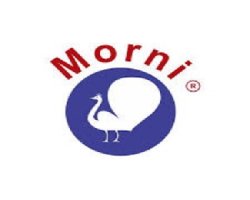
If your skin often feels tight, looks dull, or seems flaky despite being oily, you might be dealing with dehydrated skin, a condition that’s more about water loss than oil deficiency. Understanding how to choose the best Dehydrated Skin Products for your unique skin type is the first step toward restoring your skin’s health, hydration, and glow. Let’s walk through how to identify dehydrated skin and pick the right Dehydrated Skin Care Products that will work in harmony with your skin type. Understanding Dehydrated Skin vs. Dry Skin Before diving into products, it’s important to understand the difference between dry skin: Dry skin is a skin type that lacks oil. Dehydrated skin is a skin condition caused by a lack of water. Any skin type—whether oily, dry, combination, or sensitive—can become dehydrated due to lifestyle factors, environmental conditions, or harsh skincare routines. So, the goal isn’t just to moisturize, but to replenish hydration and maintain your skin’s moisture barrier. Step-by-Step Guide to Choosing the Best Products for Dehydrated Skin 1. Know Your Skin Type Even if your skin is dehydrated, it’s essential to determine your base type, which can be oily, dry, sensitive, or a combination. This determines the texture, consistency, and ingredients that your products should have. Oily skin: Look for lightweight, water-based gels or serums that hydrate without clogging pores. Dry skin: Opt for richer creams that not only hydrate but also lock in moisture. Combination skin: Balance is key—lightweight hydration with targeted emollients on drier areas works best. Sensitive skin: Choose fragrance-free, alcohol-free, and hypoallergenic products to avoid irritation. 2. Look for Hydrating Ingredients That Work The best Dehydrated Skin Products are packed with ingredients that draw water into the skin or prevent water loss. Look for this superstar hydration: Hyaluronic Acid: A moisture magnet that can hold up to 1000 times its weight in water. Glycerin: A gentle humectant that helps pull water into the skin’s outer layer. Aloe Vera: Soothing, calming, and hydrating, especially for sensitive skin. Squalane: Great for sealing in moisture without feeling greasy. Ceramides: Restore the skin’s barrier and prevent further water loss. These ingredients are often found in both Dehydrated Skin Care Products and general hydrating formulations, so make sure they are listed in the top half of the ingredients list. 3. Choose Formulas that Support the Skin Barrier Your skin barrier is your first line of defence against dehydration. Choose products that support its health: Gentle cleansers that don’t strip natural oils. Toners that are alcohol-free and hydrating. Moisturizers with barrier-repairing ingredients like ceramides and niacinamide. SPF to protect against UV damage that worsens dehydration. Avoid products with harsh exfoliants, artificial fragrances, or drying alcohols, as they can further compromise your skin’s moisture barrier. 4. Don’t Overdo It with Exfoliants Exfoliation is important for removing dead skin cells that can trap moisture, but over-exfoliating can strip the skin and worsen dehydration. Stick to: Chemical exfoliants like lactic acid (gentle and hydrating). Limit use to 1–2 times per week depending on your skin’s tolerance. 5. Prioritize Layering for Long-Lasting Hydration Dehydrated skin needs hydration at every step. Adopt a layering approach: Hydrating toner or essence Water-based serum (e.g., hyaluronic acid) Moisturizer suited to your skin type Facial oil (optional) for dry skin Sunscreen (AM only) This method locks hydration into every layer and maximizes the efficacy of each product. Bonus Tips for Managing Dehydrated Skin Drink more water: Topical hydration works best when your body is hydrated from within. Use a humidifier: Especially in dry or air-conditioned environments. Avoid long, hot showers: They strip the skin of moisture. Adjust with the seasons: Skin often needs richer products in winter and lighter ones in summer. Recommended Routine Based on Skin Type Skin TypeRecommended Product Types for Dehydrated Skin Oily Gel-based hydrating serums, non-comedogenic moisturizers Dry Cream-based moisturizers, hydrating masks, facial oils Combination Lightweight hydrating toner, balancing moisturizers Sensitive Fragrance-free hydrating creams, minimal-ingredient products Why Brand Matters: Choosing the Right Products While ingredient lists matter most, brand integrity and formulation philosophy can make a difference. Look for transparent brands that prioritize skin health over trends. Idun Aesthetics, for example, offers clean and clinically tested solutions that cater specifically to sensitive and dehydrated skin without compromising on quality or effectiveness. Final Thoughts Choosing the best Products for Dehydrated Skin involves more than grabbing the most popular moisturizer off the shelf. It means understanding your skin type, prioritizing hydration at every layer, and selecting ingredients that work with—not against—your skin. When in doubt, consult a dermatologist or skincare professional to help tailor a regimen that’s right for you. Your skin, once hydrated and cared for, will thank you with that natural, healthy glow. Best Skincare in Cairns
You may also like
More from this category.

The Power of Tandoor Ovens in Modern Commercial Kitchens

Tooth Extraction in West Delhi – Expert Oral Surgery Care | DentoHub

Vinny Pizza: A Slice of Authentic Flavor with a Modern Twist

County Pizza: Where Local Flavor Meets Legendary Taste

NextGen Diagnostic Imaging

Get the Perfect Smile with the Best Orthodontist in Langar House at FMS Dental

Best Dentist in Hyderabad – Patient-Focused Care at FMS Dental

Why Selenium Is the Most Popular Tool for Web Automation?

Anti-Aging Treatments: Modern Solutions for Youthful, Healthy-Looking Skin

